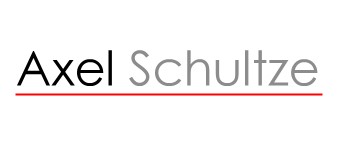This is my personal observation on our current economic situation. (2007)
We call an economic melt down “Recession”, when we don’t know the origin of the situation.
We call a Recession a ”Depression” if we failed to find the reason and continue the way we did in the past
We don’t know what we don’t know
The oil crisis or energy crisis had a name because we knew what the issues are. The Internet bubble had a name because we knew the cause and could deal with it. The current “recessive behavior of economy” seems unknown to many and have a real vague reason for some. It is pretty easy to point to the financial institutes who in turn point to politicians, and argue about interest rate definitions, manipulation of a free economy etc. But what do we say about the automobile industry and their issues? What do we say why HighTech consumption is declining? Why even consumer goods are declining before the “Financial hammer” was hitting? The list is as long as our Industry SIC codes.
Businesses around the glob will suffer 10% – 20% decrease in revenue. This causes layoffs and a dramatic increase in unemployment rate. Now this will really accelerate recessive revenues and a decrease in consumption and the spiral goes further down.
We don’t know the real origin of the revenue recessiveness
Why the layoffs in the first place? Because all we know is that consumption is going down. But too many don’t know why or have false assumptions. And hence a stimulus package would only absorb additional liquidity without helping “reform” our macro economic landscape.
Analyzing the details of recessive revenue
Try to buy a car. What is happening? You feel ripped off by that car dealer which probably has the worst reputation in the sales guild. A friend of ours found the perfect car. But the sales guy was so pushy and so aggressive that she left the store. It took another month until she found the equivalent car and be prepared through online research so she exactly knew what to buy, where to buy and what to pay. As a result she bought much later than she planned to. And so many of us have seen this same behavior with friends and with ourselves.
I tried to add an additional cable TV connection at another place. Not only that the customer unfriendly voice recognition system and out sourced call centers are rather incompetent, the available plans are so complicated and vary every day that I hung up and it took me two more month until I finally ordered it because I really had to. Just forget about some cool extras – many of us just buy what you absolutely need. And this is not because we have no money – but because we just don’t want to deal with those companies. Again you buy less and much later.
Try by a cell phone. The sales information, the plans and the sales methods are like 25 years old. Buy an Apple iPhone and you need to stand in artificially created lines to activate the phone to make it look more attractive. How can just a few weeks later people download millions of gadgets when only a few 20 per store can get activated? Better wait until the artificial hype is over and be treated as a welcome customer. Purchase delayed by 2-3 month.
Want to book a vacation. Ohhh what a drama. You wait until you know it is really about time because all those offers are so complicated and since there is no such thing called travel agency who has some friendly local representatives, you order online – cheap – late.
Buy some new clothes. You only can get what the industry is producing right now, dependent of the season, dependent on surveyed fashion trends and based on regional aspects of their purchasing departments. So the selection is highly limited, optimized, maximized in accordance to some business process automation suggestion. You simply buy less.
Now buy food. Grocery store consolidation has reduced the product variety, quality has shrunk and with less consumption the personal is now less and cheaper. You buy what you find and many get fancy by going to WholeFoods and Trader Joe’s despite the higher price. But isn’t it interesting that the super expensive Whole Food is very successful?
I can go on and on and see one interesting pattern across the board – purchases are made later by approximately one or two month at least. A delay of 2 month or 1/6th of a year translates to 16% reduction in revenue. But that is only for the goods and services we HAVE TO HAVE – or believe so. Now add the other little things that we buy or not buy and never buy just because we are sick of the bad service that is provided. An over all revenue reduction of 20% for an economy that is used to think in 3 or more percent growth – that is RECESSIVE and if we don’t wake up it will get DEPRESSIVE!
Now think about the initial customer contacts:
Call a business and you will need to dial 2 – dial 6 – dial 7 – dial 1 then land at an outsourced call center that hardly speaks English and only has a repertoire of some 20 – 30 questions. As a customer or prospect I just feel how much I’m worth to the company I try to contact. THAT CAN BE CHANGED – RIGHT?
Business Process Automation
BPI is one of the main topics of most companies. Business processes are so deeply optimized that as a customer or prospect I’m hardly playing any role. It’s all about the internal processes. The focus then includes quickly compliance issues, information flow, disclaimers and who can provide what information. At the end nobody can say anything. Corporations became so closed that again a business relationship is hardly possible. I’ve seen user groups collecting contact information from a vendors sales people to get in touch with them. It sounds unbelievable but even the customers can’t talk to sales people to buy updates (A still multi B$ telecommunication company). THAT CAN BE CHANGED – RIGHT?
Information Flow
While businesses make it much harder to get to relevant information, users are forced to dig through forums, blogs, communities to find information. The only information flow is mass emails, advertising, sponsored link with all the same – excuse me – bullshit nobody really want’s to read. I asked participants in an event “who trusts or even just cares about advertising?” all I got as an answer was a laughter. Still approximately 1 Trillion Dollar is spend in advertising and advertising related initiatives – unfortunately it’s no longer bringing any results. In general business simply lost the sense for their most precious good – customers. THAT CAN BE CHANGED – RIGHT?
Product Design, Production, Marketing, Sales, Support
We build products that are neither verified nor wanted by the market. And while customers scream about their needs in forums and user groups, producers are not even aware what they say. Businesses spend 3-5% on advertising that nobody cares anymore, they loose 3-5% of their profit right here. Sales is purely trained, and under such pressure to sell that it scares customers away. If purchase is delayed about a month translating to 8.33% reduction in revenue it often represents another loss of 4% profitability. Support is so underpowered and the leverage from knowledgeable users is simply ignored which cost another 2-5% profitability. And if we add all up our business in some cases looses even more than the average 5-10 but more like 20% soon. People get laid off to keep the company going – keep the status quo – which drives the company further down.
What on earth has all that to do with the “financial crisis”?
When businesses around the world loose their customers because the customers loose interest in those products and services, what has that to do with the prime rate? NOTHING. Why are a few companies thriving? Sheer luck? Absolutely NO. Can companies produce, market and sell products in a crisis? Yes, as long as we live, eat, move, search for new opportunities, create new opportunities, build more attractive products, provide better service, spend less on advertising nobody cares about and do what customers really are interested in.
For Even if you think – this is stupid, this is too easy, this is superficial, and I have absolutely no clue. Wouldn’t it make sense to improve your business anyway?
1) First off all re-architect your first impression:
– Stop the outsourced call centers and put less but well trained customer focused people on the phone
– Move your advertising budget towards customer relevant initiatives like blogs, communities, forums
– Seriously redefine your information policy – your shareholders rather have results than an over compliant closed company.
2) Rethink your product / service / pricing model:
– Work with product management on more transparent pricing models – the old customer rip off didn’t fly
– Listen to your customers and simply build what they ask for – if you don’t do it someone else will
– Take green and social serious. It’s not a hype it’s what the majority of customers care about.
3) Redefine your corporate values (if you have any)
– Make the ones who pay you (customers) not silly Kings but seriously valued Advisors and Advocates
– Measure, manage and control customer reflection on you not by anonymous endless surveys but by tangible activities in your ecosystem
– As CEO erase “Shareholder value” from your list of priorities. Shareholder value comes automatically and for free if your customers are happy and buy more products. Instead make market relevance the one and only goal for your business. Market relevance is when more people consider you important, trustful and buy your products, services and buy into your vision.
I’ve never been in a real recession before, so I can’t tell if this one is different or if our tools and information flow is so much better that we can analyze the issues. But it is very obvious to me that if people are less motivated to buy, mostly disappointed with the resources and services the seller provides them, that consumption goes down.
Plausibility Check:
1) Personal Experience
look at the last 6 months where you as a consumer bought things whether it was a new or used car, stereo, TV, video games, phone services, homes, food, clothes, booked a vacation… what ever, how happy where you with the service, hoe easy was it to buy it, how compelling was the offer.
2) Influence
Now check: what or who were the influencing factors for said purchases, how important was advertising for any of them, how important were past experience, suggestions from friends or what kind of other influences would you name as important
3) Behavior
Try to remember what would you have purchased either faster or more of in the last 12 month if the offer would have been more compelling, if the producer or reseller would have been more trustful and if the whole business experience would have been more attractive. Whatever dollar amount you come up with from the last 12 month multiply it by 300 Million (US population) and you get the “Recession value”. For instance if you would have purchased stuff worth of $1,000 in the last 12 month as an average citizen – The “Recession Value” for the US economy would be 3 Trillion Dollar. A lot of tax dollars our country is loosing too.
Well – this is just a short and superficial glimpse into our super complex economic network. But hopefully enough to get you thinking “What can I do to create a better business experience for my customers, prospects and partners”.






 More and more people understand today, that our future is not accidentally happening but literally created by us and by the forces of our universe.
More and more people understand today, that our future is not accidentally happening but literally created by us and by the forces of our universe.